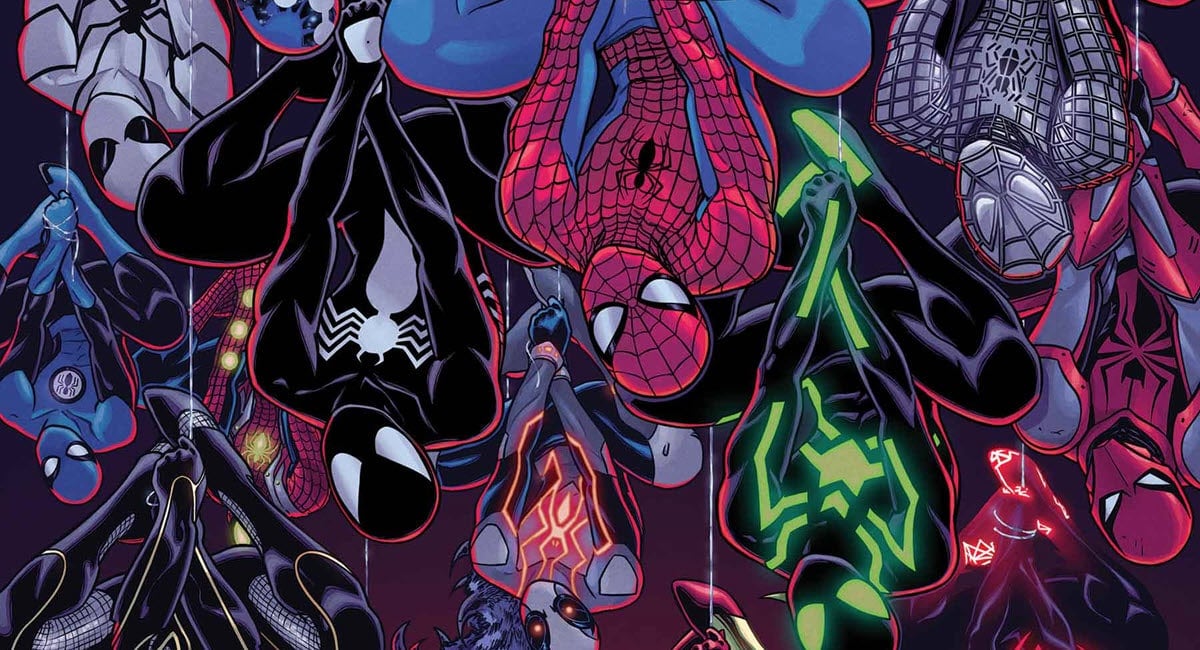First, let’s snap all the lawyers.
Avengers: Endgame spoilers ahoy.
“Hell is filled with good wishes,” wrote the medieval monk and legal reformer Bernard of Clairvaux, and the same could be said of the Marvel Cinematic Universe after Avengers: Endgame. The Avengers’ decision to wish everyone back into their present rather than to restore the earlier status quo might have kept Tony Stark’s daughter alive, but it also created a host of legal and personal problems.
One that no doubt immediately came to mind for countless couples on an Endgame date night: what about the spouses and partners who’d moved on? Complications arising from the return of someone once presumed dead is a recurring narrative trope for a reason: apart from the emotional impact, problems arising from bigamy laws, the adoption of children by a step-parent, and changes in the ownership of joint property raise unsettling questions about how law and time shape personal identity.
For the denizens of the MCU, this existential anxiety would take an all too real form, as millions, if not billions of individuals would return home only to find that they have no legal connection to their spouses, partners, children, houses, and cars. Inheritance is, pardon the pun, a related issue.
For example, let’s suppose that Hawkeye were killed in his pursuit of vengeance — because he was dead and his family was presumed killed in the snap, all of their property would have presumably escheated to the government. When his family returned, they would own nothing besides the clothes on their backs. Alternatively, if only Hawkeye’s spouse and one disappeared and then Hawkeye died, the remaining child would have inherited all of the property, thus setting up a potential intra-family legal conflict when the remaining members returned.
Sorting out legal issues among returning and surviving family members is, however important, just one area of concern. Returnees who had jobs would not only find themselves out of work, but some of them would no longer have the right to pursue their chosen profession — doctors and lawyers, for example, would have had their licenses lapse. The spike in unemployment, Social Security, and other social welfare payouts would in turn place substantial stress on government budgets, potentially to the point of triggering a global financial crisis.
Speaking of which, insurance companies would also look for a contractual basis for recouping any payouts made to survivors following the snap. If the policy provided for payout after a person had disappeared for more than 365 days, this could be more difficult than the insurance company might like, but it is also not unusual for policy agreements to provide for recoupment when a payout has been made on the basis of a statement that is “false” — that is to say, inaccurate, but not necessarily fraudulent.
And the legal problems are not limited to returning adults, as is evident from the return of Peter Parker and seemingly all of his classmates, each of whom now has birthdate five years older than their biological age. Can they all now legally drive? Rent a car? Buy alcohol? Vote? Would they all now be above the age of consent? If AOC had been snapped and returned, would she now be just one year shy of the legal minimum age for running for president?
And how would the return affect the right of royal succession in the UK, which is determined by royal heirs’ relative ages? If Thanos had snapped away Prince George, would he inherit the throne due to his birthdate, or would his biologically older sibling Princess Charlotte take the crown?
The host of problems resulting from the Avengers’ wishing billions of people back into existence could have direct legal consequences for the Avengers themselves. Some jurisdictions have Good Samaritan laws designed to protect do-gooders from legal liability, but these are by no means universal and exceptions do apply.
Resourceful lawyers would also no doubt argue that they exhibited gross negligence in their quest to gather the infinity stones, particularly in failing to consider the potential memory leak between Nebulas and to make sure that the correct Nebula had returned. We could even expect struggling returnees and their relatives to file innovative variants on wrongful life lawsuits, claiming that the Avengers should not have brought them into this world — if word got out that they returned millions of people to a lifetime of misery in the present just to make Tony Stark happy, both the Avengers and the Stark estate could face bankruptcy on their legal fees alone.
Lawsuits to address such issues would be, like Thanos, inevitable, and the resulting precedents would have the potential to reshape law in ways we have yet to imagine. Perhaps, though, we should try, since the return of the departed is on the verge of being more than an abstraction.
Just as computer graphics are taking superhero movies to new creative heights, the use of digital technology to preserve our memories and personalities is raising questions about the nature of personhood that could raise substantial legal challenges for our own world.









You had me at the Bernard of Clairvaux quote, Jeff.
Thanks — a very enjoyable intellectual exercise. (I hope it will have no practical value to me.)
I finally saw it, liked it, and thought it was much better than “Infinity War.” I especially liked the final shot. Ending the sage on a quiet note of romantic bliss was unexpected — and perfect.
It’s hard not to think of these films as the stories of Iron Man and Captain America, with the other characters in support. “Endgame” concluded their stories, and although I know that Tony Stark and Steve Rogers will eventually return in other movies, with other actors, I doubt I’ll be interested in seeing them.
Been listening to this since seeing it:
funny, as much as I enjoyed seeing downey jr. and evans, and johanson, in the movies, I look forward to seeing the return of these characters in future movies, played by other actors. honestly, if the powers that be decide to not have those characters return I doubt i’ll be interested in any future avengers movies. it just wouldn’t be an avengers movie (or the MCU) without those characters in it.
Comments are closed.